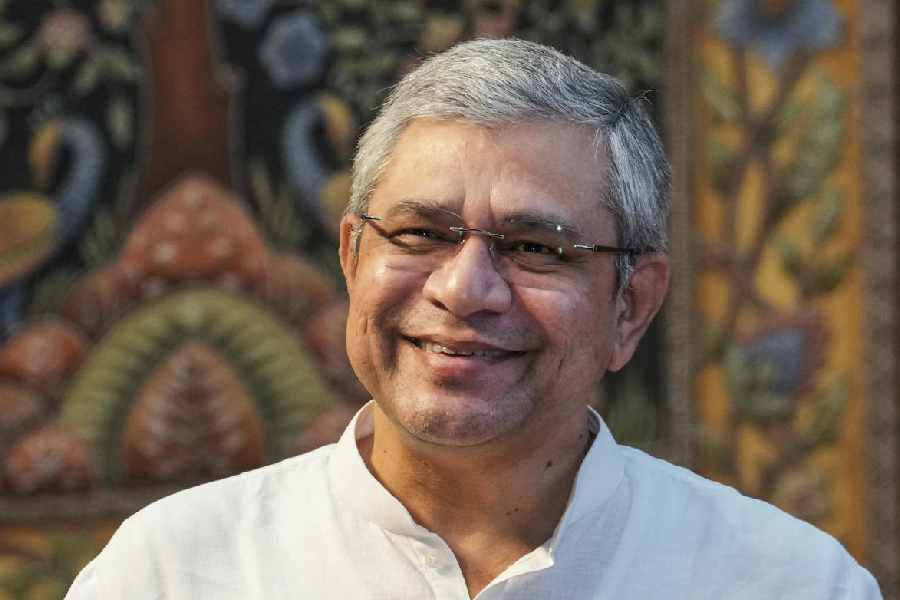Information and broadcasting minister Ashwini Vaishnaw on Wednesday announced plans to celebrate 150 years of Bankim Chandra Chatterjee’s Vande Mataram, the national song, triggering concern among sections of historians and Muslim outfits.
Vaishnaw said the cabinet had taken the decision. Several historians alleged the plan was to divide people on religious lines. Some minority outfits said the song had “anti-Muslim undertones”.
“Vande Mataram played an important role in India’s freedom movement. The song’s 150 years will be celebrated across the country. Youths and students, many of whom are not aware of history, will join the programmes to celebrate the original sentiment associated with this song,” Vaishnaw told a media conference.
The minister was asked whether the song would be celebrated in madrasas as well. “Sabko jodna chahiye (Everyone should take part),” he replied.
Vaishnaw was also asked whether only the two stanzas of the song that have been adopted as the National Song would be celebrated or the entire five stanzas would be sung.
“Bhavna ko dekhiye. Stanza baad mein gin lena. Please understand the spirit. Leave the stanzas for now,” he said.
Prof. Sugata Bose’s book The Nation As Mother says the song was composed by Chattopadhyay in 1875. It was used in his novel Anandamath in 1882.
The first two verses were adopted as the national song after Independence. It was written in Sanskrit but printed in the Bengali script in Anandamath. Vande Mataram literally means “I bow to thee, Mother”.
Prof. Nadeem Rezavi, secretary of the Indian History Congress and a faculty member at Aligarh Muslim University, said Vande Mataram “had references of Goddess Durga and was part of a book which has undisputed anti-Muslim undertones”.
“To a section of Muslims, it is sacrilegious to bow before anyone but God. Worship of a non-God is forbidden. So Vande Mataram by its very nature and provenance is unacceptable to many citizens of the country. Even Gandhiji and other nationalists were never in favour of making it ‘compulsory’, thus it was not chosen as the national anthem,” Rezavi said.
“There are many things chosen as “national”: national bird, national flower, national animal or a national song. Should all of them be treated on a par? This Hindutva dispensation derives itself from those who collaborated with our colonial masters who believed in divide and rule. Making such a controversial song compulsory reading is nothing but furthering the same policy of demonising certain communities,” Rezavi added.
57 KVs
The Union cabinet on Wednesday approved a proposal to set up 57 Kendriya Vidyalayas over the next nine years.
The total estimated requirement of funds is ₹5,862.55 crore, spread over nine years from 2026-27. This includes a capital expenditure component of ₹2,585.52 crore and an operational expenditure of ₹3,277.03 crore.
These 57 KVs have been sanctioned with Balvatikas, which means three years of foundational stage classes.
DA hike
The cabinet has approved a hike of 3 per cent in dearness allowance (DA) to central government employees and dearness relief (DR) to pensioners with effect from July 2025. This will benefit about 49.19 lakh employees and 68.72 lakh pensioners.










